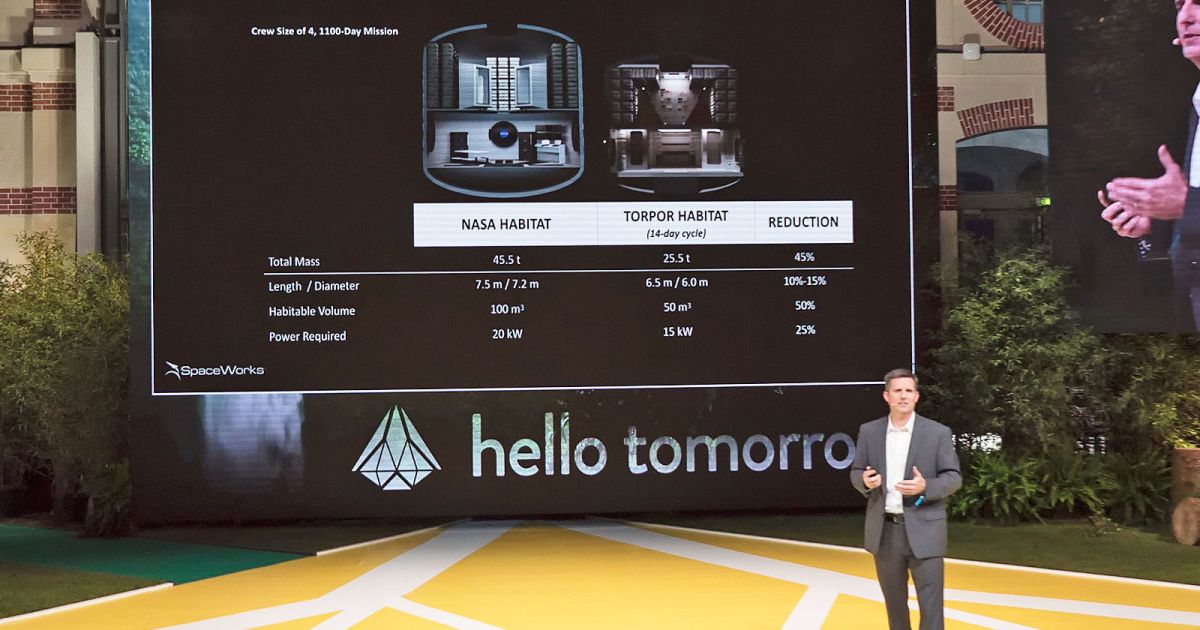While NASA and SpaceX figure out how to get to Mars, they’re also thinking about how the 200-day journey and life on the red planet will affect humans. Astronauts will be dealing with nasty things like muscle atrophy and bone loss, intra-cranial pressure, psychological issues, lack of resources and long-term radiation exposure. NASA and its partners are working on things like “torpor,” a type of space hibernation, and protective Mars cave dwellings with a view. To learn more, Engadget spoke with NASA scientist Laura Kerber and Spaceworks COO John Bradford at the Hello Tomorrow symposium in Paris.
“There are a lot of challenges that are preventing us from even getting there in a healthy state,” said Bradford in a keynote speech at the event. As a human-space-exploration expert, he’s been working on a way to mitigate many of those problems by putting astronauts in a “torpor state” of prolonged hypothermia. It not only reduces the human problems but helps with technical and engineering challenges, too.
On the medical side, it addresses the so-called psycho-social challenges (you can’t get depressed if you’re asleep), reduces intra-cranial pressure, opens up new approaches like electrostimulation to reduce muscle atrophy and bone loss, and even helps minimize radiation exposure.
